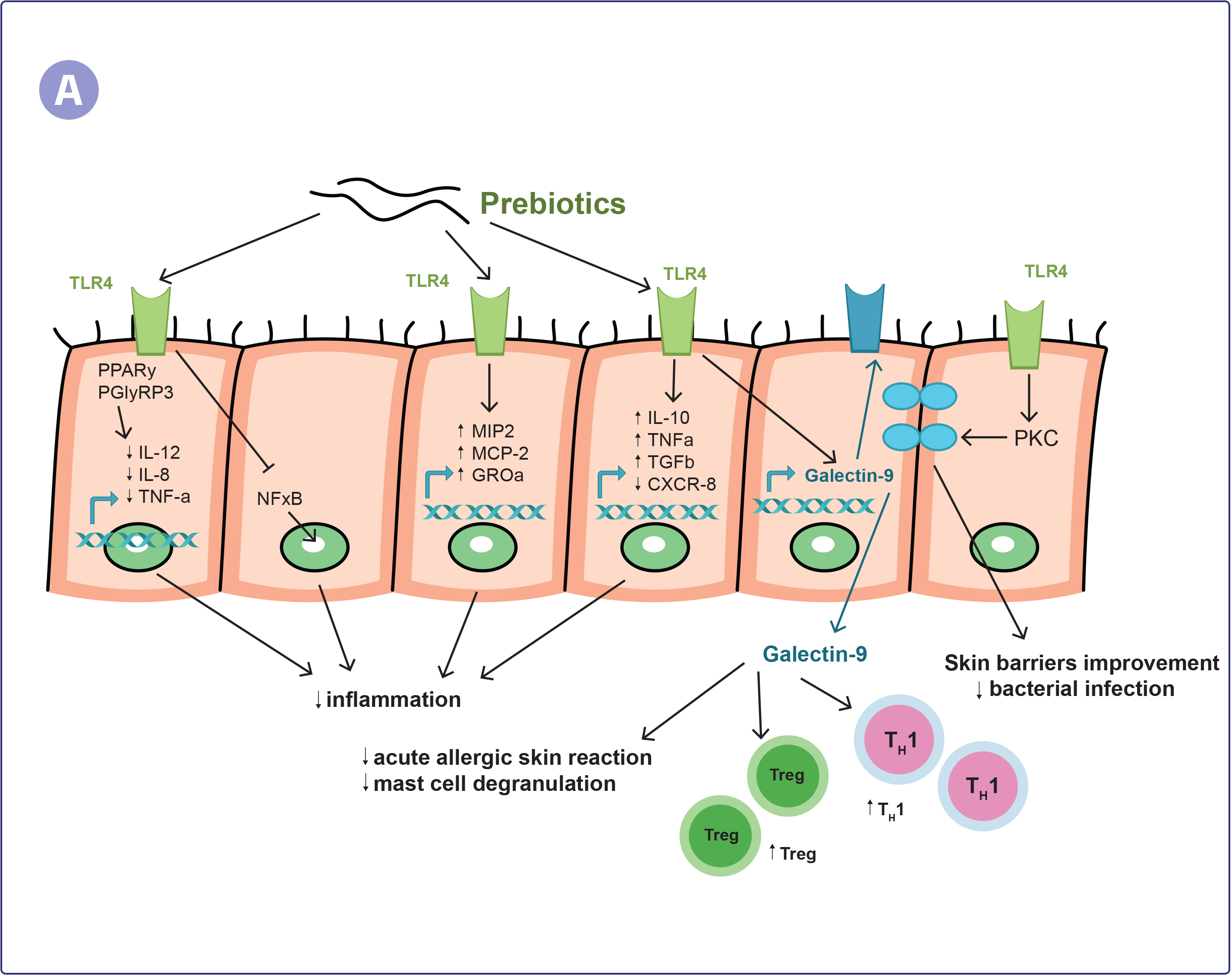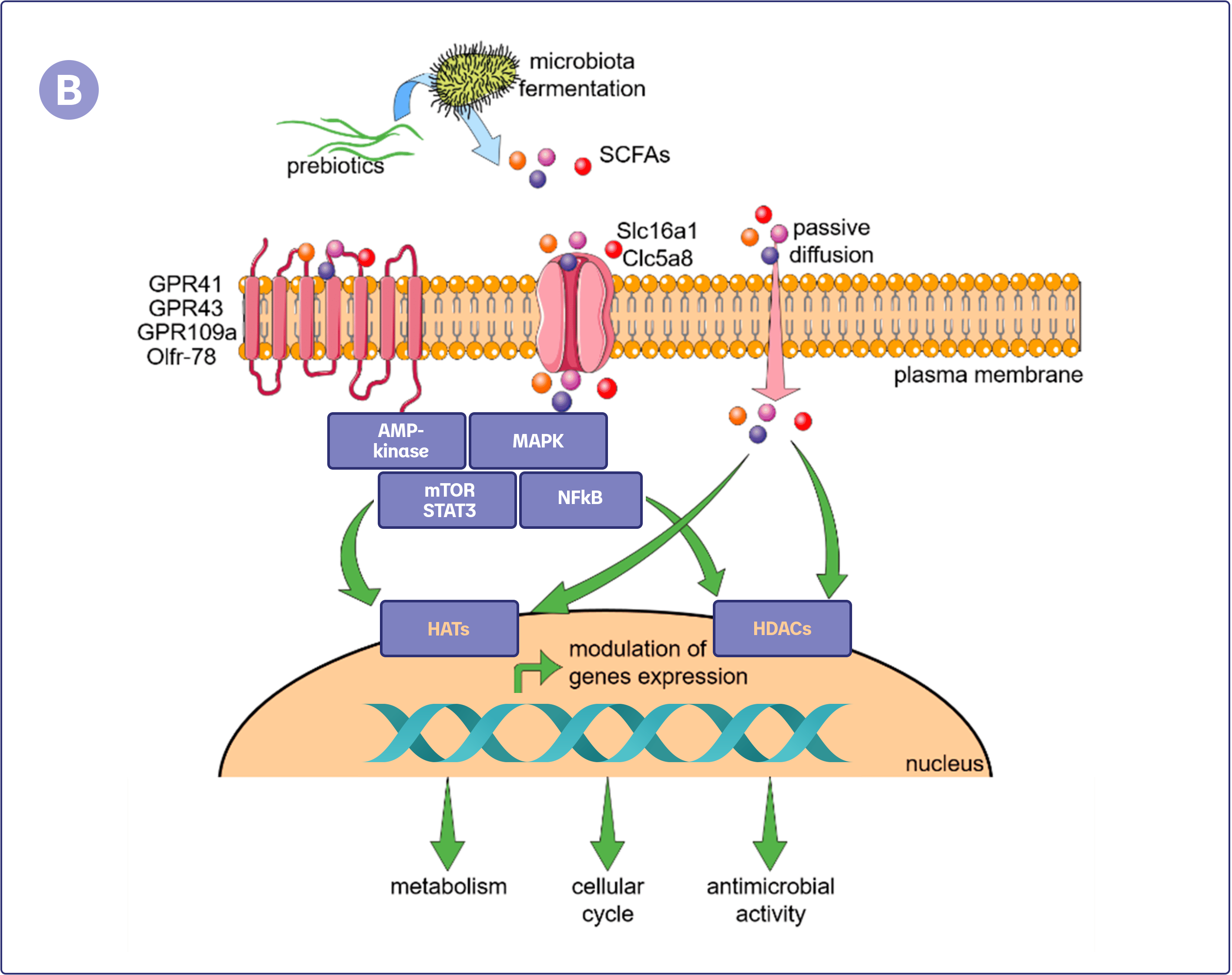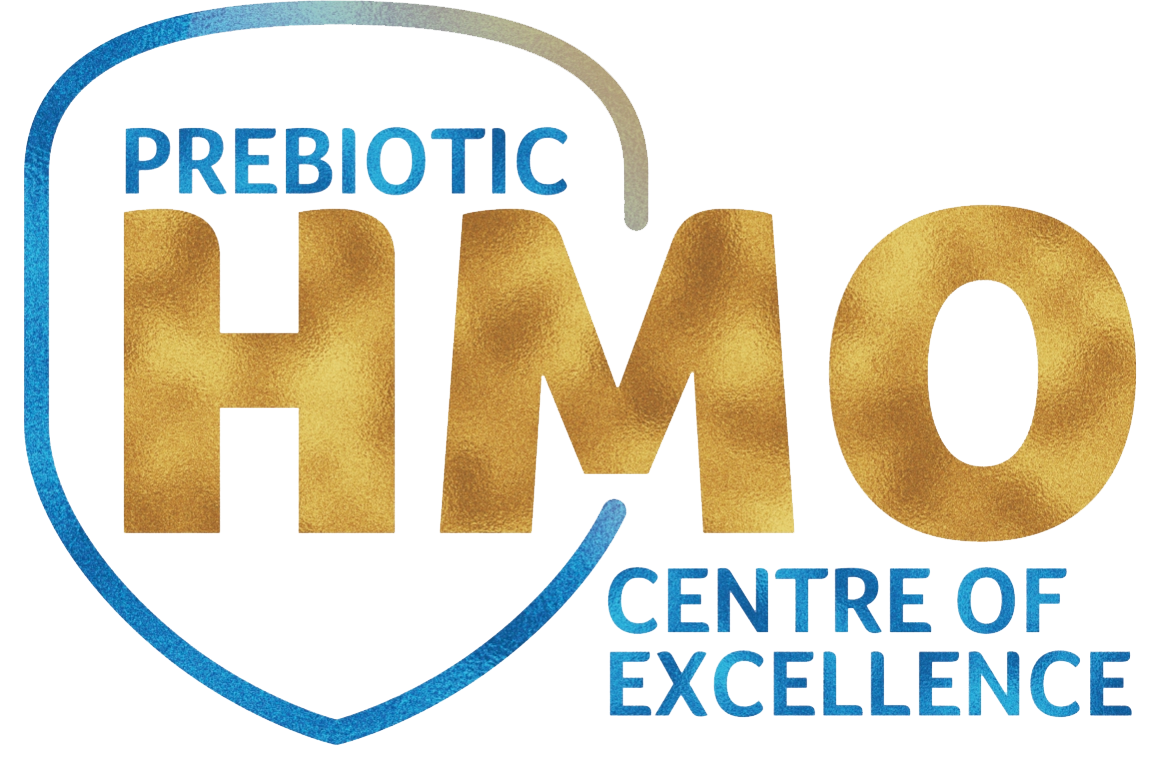Mechanism and Preventive Effects of Prebiotics in Allergy
Allergic diseases are classified as the 4th most common global disease by WHO. Allergic diseases affect up to 30% of the world population, particularly young children. Development of allergic diseases has been linked to changes in environment and lifestyle which drive the dysfunction of interdependent biological system for host protection and immune tolerance: microbiota, epithelial barrier, and immune system. Evidence suggest that prebiotics can modulate the dysfunctional biological system.
Prebiotics are non-digestible food material that benefit the health of the host by stimulating activity of commensal bacteria in the colon and acting directly on epithelial and immune cells. Prebiotics are resistant to digestion in the stomach and upper intestine, they are fermented by the gut microbiota and stimulate the growth of beneficial intestinal bacteria.
Evidence also suggests that prebiotics can also modulate the immune system, prevent against infection, and improve mood and memory. According to ESPGHAN Committee, galacto-oligosaccharides (GOS) and fructo-oligosaccharides (FOS) in the ratio 9:1 is the most recognized and well-studied prebiotic combination2. Short chain GOS (scGOS) and Long chain FOS (lcFOS) in the ratio 9:1 have a proven prebiotic effect and status. Bifidogenic effect is only observed with the combination of scGOS/lcFOS in the ratio 9:13.
Prebiotic Mechanisms in Allergy Management
Prebiotics can directly or indirectly modulate the three major systems that are dysfunctional in allergic disease development: the gut microbiota, the immune system and the epithelial barriers.
Direct effect:
Prebiotic stimulates cell spreading and facilitates wound repair. It reduces pro-inflammatory cytokines and produce anti-inflammatory cytokines leading to the decrease of intestinal inflammation and modulating host cell signalling to promote epithelial barrier integrity. Prebiotics also reduce acute allergic skin reaction and mast cell degranulation by enhancing galectin-9 expression. It induces protein kinase C (PKC) to promote barrier integrity and prevents pathogen-induced barrier disruptions and reduces chances of bacterial infection.

Fig A. Direct effect of prebiotics on gut epithelial cells.
Indirect effect:
The commensal bacteria in the intestine ferment the prebiotic scGos/lcFOS which leads to the modulation of the gut intestinal microbiota. As a result, short chain fatty acids (SCFAs) are released in the gut, which can influence the activity of innate and adaptive immune cells. SCFAs can increase the epithelial barrier function by stimulating O2 metabolism in intestinal epithelial cell lines (IEC). SCFAs interact with the intestinal epithelial cells in the intestinal tract which can influence the intestinal protective immunity via IEC cytokines secretion.
Prebiotics also inhibit gut inflammation by inducing anti-inflammatory cytokines and reduce pro-inflammatory cytokines. Prebiotics can effect the gut and immune system by SCFA production. The regulatory effect of SCFA can prevent allergies.

Fig. B The general mechanisms of SCFAs
Clinical studies supporting Prebiotic supplementation
The World Allergy Organisation (WAO) guideline panel suggested prebiotic supplementation in not-exclusively breastfed infants, both at high and at low risk for developing allergy.

Conclusion:
Prebiotics scGOS:lcFOS(9:1) can modulate the gut microbiota, immune system and epithelial barrier, the three major systems dysfunctional in allergic diseases. Thereby preventing allergic manifestation in infants.
ESPGHAN - European Society of Pediatric Gastroenterology, Hepatology and Nutrition
eHF - extensively Hydrolysed Feed
Reference:
- Carole Brosseau, Amandine Selle, et al. Prebiotics: Mechanisms and Preventive Effects in Allergy. Nutrients 2019, 11(8), 1841. Published: 8 August 2019.
- Mohamad Miqdady, Jihad Al Mistarihi, Amer Azaz, et.al. Prebiotics in the Infant Microbiome: The Past, Present, and Future. Pediatr Gastroenterol Hepatol Nutr. 2020 Jan; 23(1): 1-14. Published online 2020 Jan 9.
- Seppo Salminen, Bernd Stahl, et.al. Infant Formula Supplemented with Biotics: Current Knowledge and Future Perspectives. Nutrients 2020, 12(7), 1952.
1714725404556

